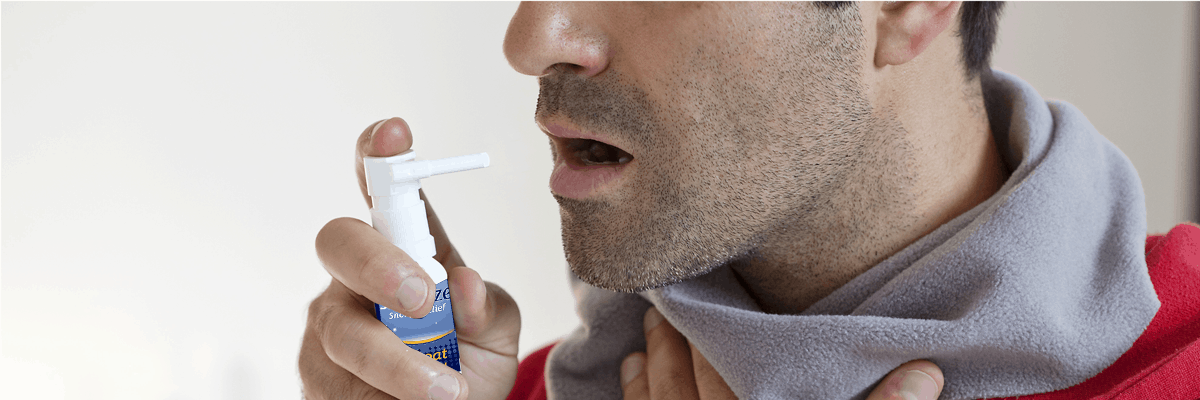A recent Snoreeze YouGov survey found that 16% of women and 12% of men don’t think snoring relief products work effectively. There are many snoring treatment options available – but do they really work?
When you’re faced with a shelf full of anti-snoring products, it can be difficult to choose one that you think will help. Many people simply grab the first bottle they see, or pick something based on the fact it worked for somebody else. But choosing a snoring relief product isn’t as simple as that – there are different types of snoring, and different products treat different types.
The Snoreeze survey revealed that 12% of men had bought an anti-snoring product. Of these, 57% bought a nasal spray or strips. A whopping 85% of women who also purchased a snoring relief item bought a nasal product.
Nasal sprays and strips treat snoring caused by a cold, allergies or a blocked nose. But chances are, most people aren’t snoring solely because of this. Snoring is caused by many factors, and these can be split into the following categories:
1) Everyday snoring: snoring caused by dehydrated soft tissue at the back of the throat. When you sleep, your muscles relax, including the ones in your throat. This relaxation can cause your airway to narrow, making it difficult for your lungs to inhale and exhale the amount of air you need. If your airway narrows too much, the air you breathe is then pulled through it faster. This causes the soft tissue in the back of your throat to dehydrate and vibrate. The sound this makes is what you hear as snoring. Snoreeze Throat Spray, Oral Strips and Lozenges treat this type of snoring.
2) Snoring with congestion: snoring caused by a cold or allergies. When nasal tissue swells during a cold (or allergic reaction to pollen, dust or other allergens), the airflow through the nose becomes blocked or restricted. This narrowing of your airway forces the air you breathe to travel faster and further dehydrate the tissue in your throat. Nasal congestion can make you snore in the night and have a dry mouth when you wake. Snoreeze Nasal Spray and Nasal Strips treat this type of snoring.
3) Loud snoring and obstructive sleep apnoea (OSA). Snoring is caused by the soft tissue in the back of the throat vibrating when your airway relaxes during sleep. But in some cases, the airway becomes so narrow that the walls of the airway stick together and close up. This usually happens for around 10-30 seconds at a time, but can occur for longer – sometimes up to 50 times an hour or even more. When the airway finally opens up again, you might emit a loud, violent snore. This event is known as an apnoea. The Snoreeze Oral Device treats mild OSA and snoring by holding your jaw in the right position while you sleep. This opens your airway and helps you breathe. If you think you have OSA, you should visit your doctor as soon as possible – they’ll be able to recommend a suitable treatment.
What type of snorer are you?
It’s worth noting that some people are multifactorial snorers – a combination of the categories above. If you’re not sure what type of snorer you are, click here to find out which categories you fall into, as well as recommended products.

